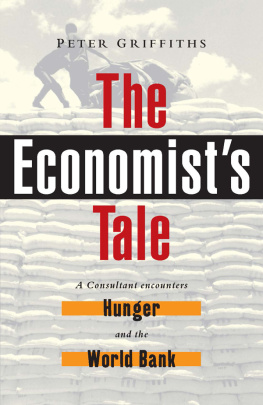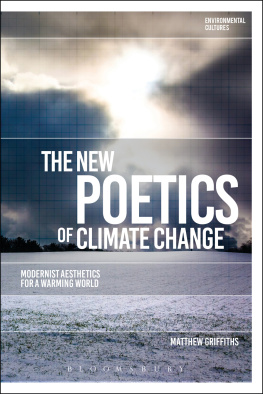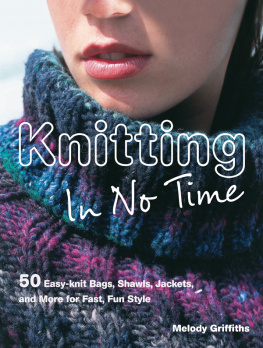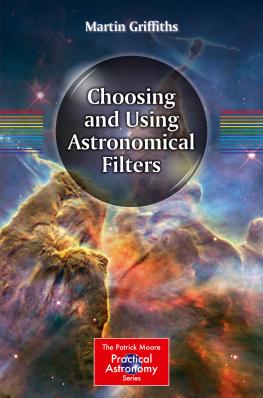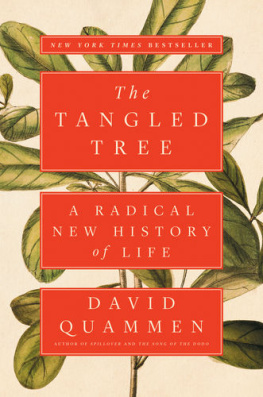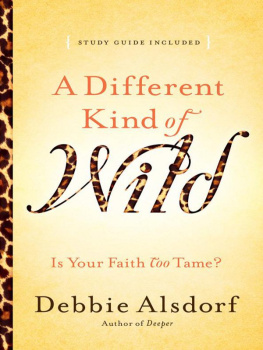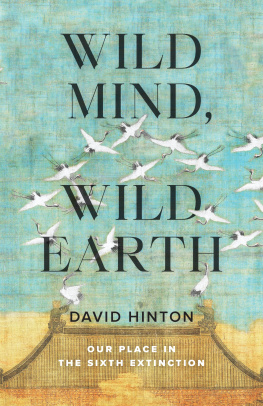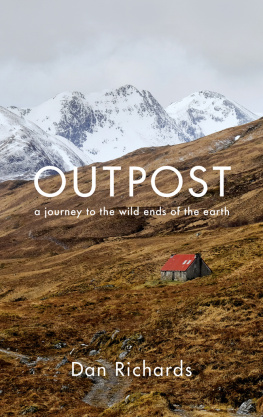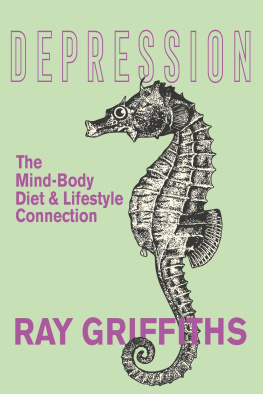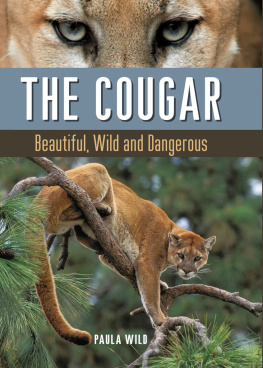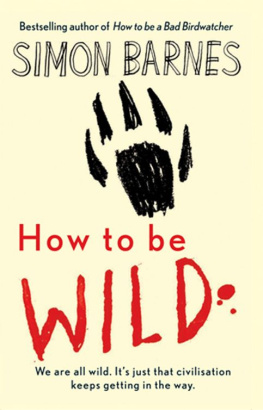Praise for Pip Pip: A Sideways Look at Time
Cheeky, intelligent, always gripping. It will be the opening salvo
in a new battle over the human spirit George Monbiot
A whirl of a book. Any page will get you hooked
New Scientist
A fascinating, highly original meditation on time
Fritjof Capra
An exercise indeed in Dharma, poetry and philosophy
Gary Snyder
Flowing with ideas, an audacious and exhilarating book
Sydney Morning Herald
Amusing and erudite, fascinating and spirited. Bravo!
The Times Literary Supplement
Wild
AN ELEMENTAL JOURNEY
Jay Griffiths
HAMISH HAMILTON
an imprint of
PENGUIN BOOKS
HAMISH HAMILTON
Published by the Penguin Group
Penguin Books Ltd, 80 Strand, London WC2R 0RL, England
Penguin Group (USA) Inc., 375 Hudson Street, New York, New York 10014, USA
Penguin Group (Canada), 90 Eglinton Avenue East, Suite 700, Toronto, Ontario, Canada M4P 2Y3
(a division of Pearson Penguin Canada Inc.)
Penguin Ireland, 25 St Stephens Green, Dublin 2, Ireland (a division of Penguin Books Ltd)
Penguin Group (Australia), 250 Camberwell Road,
Camberwell, Victoria 3124, Australia (a division of Pearson Australia Group Pty Ltd)
Penguin Books India Pvt Ltd, 11 Community Centre,
Panchsheel Park, New Delhi 110 017, India
Penguin Group (NZ), 67 Apollo Drive, Rosedale, North Shore 0632, New Zealand
(a division of Pearson New Zealand Ltd)
Penguin Books (South Africa) (Pty) Ltd, 24 Sturdee Avenue,
Rosebank, Johannesburg 2196, South Africa
Penguin Books Ltd, Registered Offices: 80 Strand, London WC2R 0RL, England
www.penguin.com
First published in the United States of America by Jeremy P. Tarcher, a member of
Penguin Group (USA) Inc. 2006
First published in Great Britain by Hamish Hamilton 2007
1
Copyright Jay Griffiths, 2006
The moral right of the author has been asserted
All rights reserved
Without limiting the rights under copyright
reserved above, no part of this publication may be
reproduced, stored in or introduced into a retrieval system,
or transmitted, in any form or by any means (electronic, mechanical,
photocopying, recording or otherwise), without the prior
written permission of both the copyright owner and
the above publisher of this book
Printed in Great Britain by Clays Ltd, St Ives plc
EISBN: 9780241141526
Contents
.
flight, silhouetted in the primal
PENNY RIMBAUD
WILD EARTH
ABSOLUTE TRUANCY
I felt its urgent demand in the blood. I could hear its call. Its whistling disturbed me by day and its howl woke me in the night. I heard the drum of the sun. Every path was a calling cadence, the flight of every bird a beckoning, the colour of ice an invitation: come. The forest was a fiddler, wickedly good, eyes intense and shining with a fast dance. Every leaf in every breeze was a toe tapping out the same rhythm and every mountaintop lifting out of cloud intrigued my mind, for the wind at the peaks was the flautist, licking his lips, dangerously mesmerizing me with inaudible melodies that I strained to hear, my ears yearning for the horizon of sound. This was the calling, the vehement, irresistible demand of the feral angeltake flight. All that is wild is wingedlife, mind and languageand knows the feel of air in the soaring flight, silhouetted in the primal.
This book was the result of many years yearning. A longing for something whose character I perceived only indistinctly at first but that gradually became clearer during my journeys. In looking for wilderness, I was not looking for miles of landscape to be nicely photographed and neatly framed, but for the quality of wildness, whichlike art, sex, love and all the other intoxicantshas a rising swing ringing through it. A drinker of wildness, I was tipsy with it before I began and roaring drunk by the end.
I was looking for the will of the wild. I was looking for how that will expressed itself in elemental vitality, in savage grace. Wildness is resolute for life: it cannot be otherwise, for it will die in captivity. It is elemental: pure freedom, pure passion, pure hunger. It is its own manifesto.
So I began this book with no knowing where it would lead, no idea how hard some of it would be, the days of havoc and the nights of loneliness, because the only thing I had to hold on to was the knife-sharp necessity to trust to the elements my elemental self.
I wanted to live at the edge of the imperative, in the tender fury of the reckless moment, for in this brief and pointillist life, bright-dark and electric, I could do nothing else. By laying the line of my way along another, older path, I would lay my passions where they belonged, flush with wildness, letting their lines of long and lovely silk reel out in miles of fire and ice.
I felt that my blood could only truly flow if it coursed into red, red earth. That I would only know my deepest glee if I could dive in an oceanful of trilling fish. I wanted to climb mountains till I cracked with the same ancient telluric vigour that flung the Himalayas up to applaud the sky. I was, in fact, homesick for wildness, and when I found it I knew how intimatelyhow resonantlyI belonged there. We are charged with this. All of us. For the human spirit has a primal allegiance to wildness, to really live, to snatch the fruit and suck it, to spill the juice. We may think we are domesticated but we are not. Feral in pheromone and intuition, feral in our sweat and fear, feral in tongue and language, feral in cunt and cock. This is the first command: to live in fealty to the feral angel.
I wanted to put my cheeks against a glacier, to drink direct from hot springs, to see vistas untamed. Its ferocious, this feeling: vigorous and raw. Wanting to touch life with the quick of the spirit, to feel the wind in my hair, the crusts of mud under my fingernails, the sun on my naked body, ice cracking my lips, tides flooding my body inside and out. Immersion is all.
I sketched out my journeys according to four elements of ancient Greece, earth, air, fire and water, but adding ice as if it were an element in its own right, which in a landscape it is. The only chapter I never planned to write was the last. It forced its way into the book, like a court jester with a dirty laugh and a deadly serious look in his eyes, leaping onto the stage just as Act Five was closing, and offering an answer to the deepest question: the quintessential coupling of wildness with life.
I took seven years over this work, spent all I had, my time, money and energy. Part of the journey was a green riot and part a deathly bleakness. I got ill, I got well. I went to the freedom fighters of West Papua and sang my head off in their Highlands. I got to the point of collapse. I got the giggles. I met cannibals infinitely kinder and more trustworthy than the murderous missionaries who evangelize them. I went to places that are about the worst in the world to get your period. I wrote notes by the light of a firefly, anchored a boat to an iceberg where polar bears slept, ate witchetty grubs and visited sea gypsies. I found a paradox of wildness in the glinting softness of its charisma, for what is savage is in the deepest sense gentle and what is wild is kind. In the enda strangely sweet resultI came back to a wild home.
I wanted nothing to do with the heroics of the solo expedition. There was no mountain I wanted to conquer, no desert I wanted to be the first woman to cross. I simply wanted to know something of the landscapes I visited and wanted to do that by listening to what the knowers of those lands could tell me if I asked. I was exasperated (to put it mildly) by the way that so many writers in the Euro-American tradition would write reams on wilderness without asking the opinion of those who lived there, the native or indigenous people who have a different word for wilderness:
Next page


